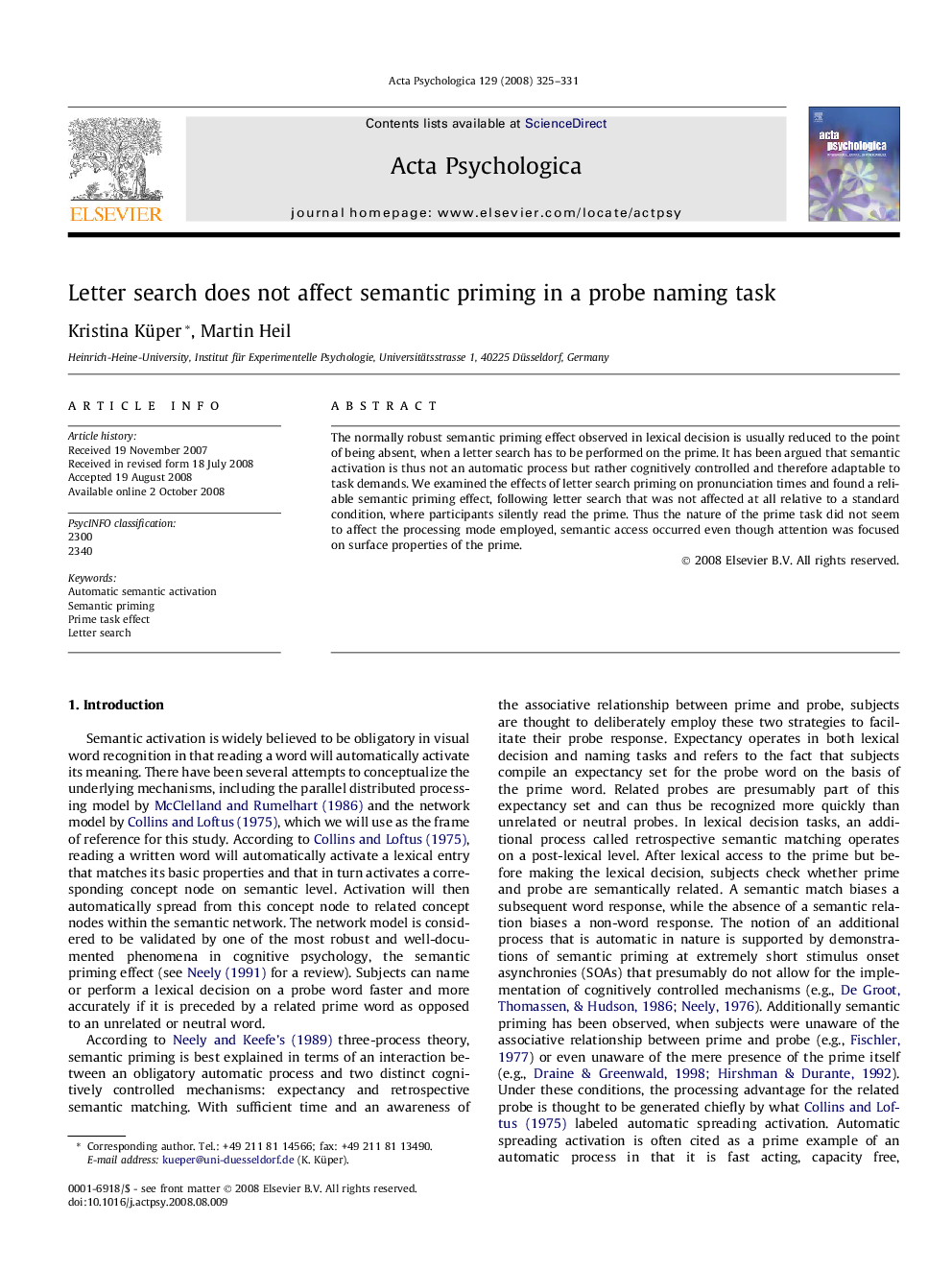| Article ID | Journal | Published Year | Pages | File Type |
|---|---|---|---|---|
| 920341 | Acta Psychologica | 2008 | 7 Pages |
The normally robust semantic priming effect observed in lexical decision is usually reduced to the point of being absent, when a letter search has to be performed on the prime. It has been argued that semantic activation is thus not an automatic process but rather cognitively controlled and therefore adaptable to task demands. We examined the effects of letter search priming on pronunciation times and found a reliable semantic priming effect, following letter search that was not affected at all relative to a standard condition, where participants silently read the prime. Thus the nature of the prime task did not seem to affect the processing mode employed, semantic access occurred even though attention was focused on surface properties of the prime.
